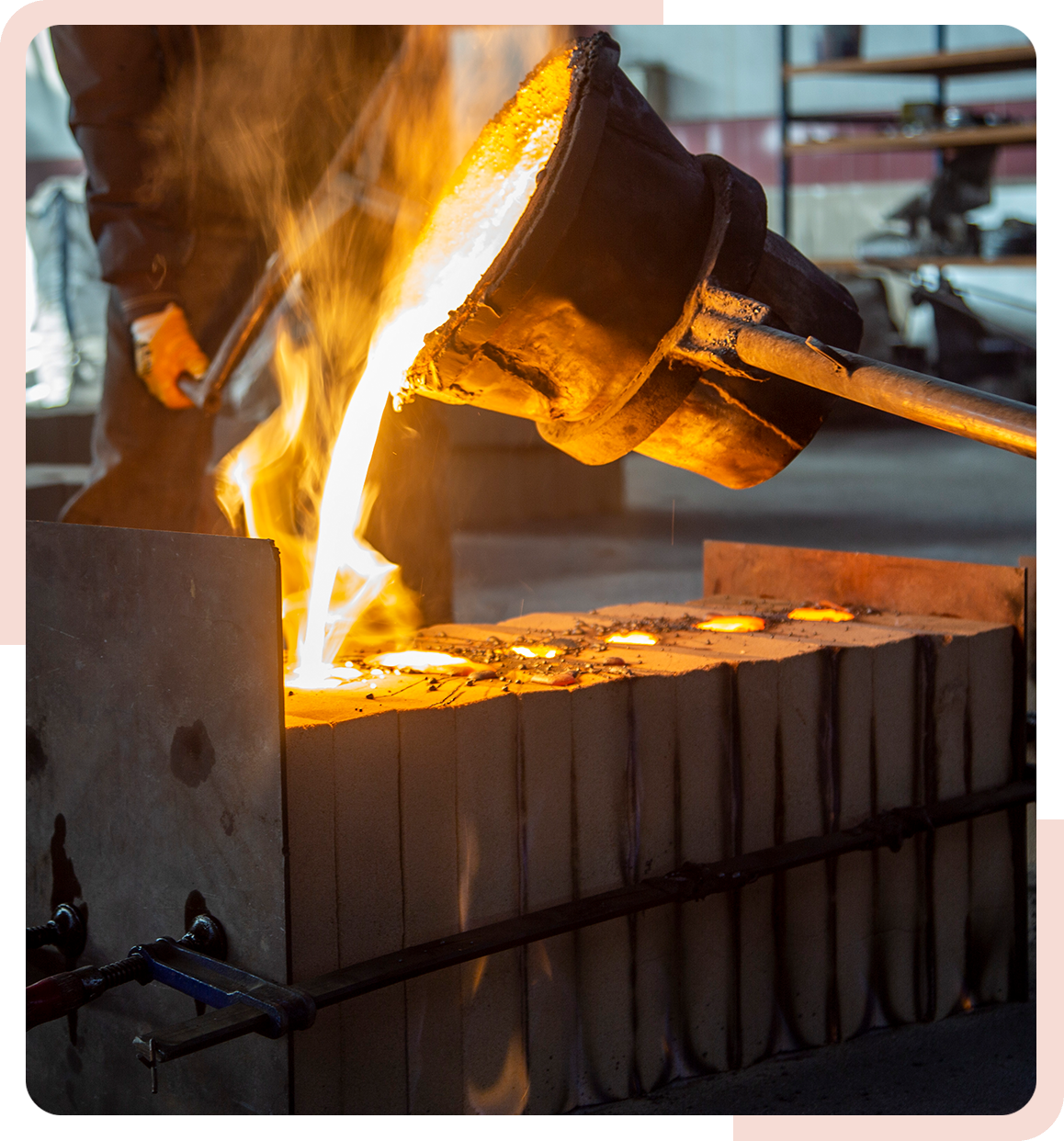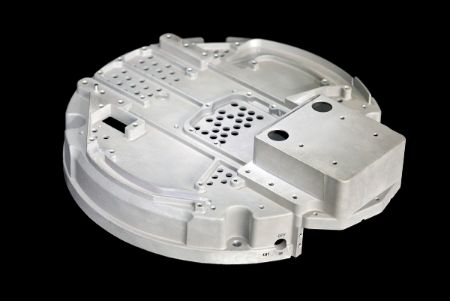Discover the Advantages of Aluminum Casting in Modern Manufacturing
Aluminum casting has actually become a pivotal process in modern manufacturing. Its lightweight yet robust nature provides considerable benefits for numerous sectors. The capacity to accomplish detailed layouts and maintain tight resistances includes in its allure. Aluminum Foundry. Furthermore, the cost-effectiveness and ecological benefits make it a lasting selection. As manufacturers seek innovative options, the function of aluminum casting remains to advance. What specific applications and benefits await exploration in this vibrant area?
Light-weight Yet Strong: The Benefits of Aluminum
Lots of products are utilized in manufacturing, aluminum stands out due to its exceptional mix of light-weight residential properties and remarkable toughness. This unique feature makes aluminum an optimal option for different applications, particularly in industries such as automobile, aerospace, and construction. Its reduced density permits simpler handling and transport, adding to reduced energy intake throughout manufacturing and setting up processes.
Aluminum's strength-to-weight ratio is impressive, making it possible for producers to produce durable elements without including unnecessary mass. This characteristic is especially important in industries where weight reduction can result in enhanced fuel efficiency and overall performance. Furthermore, aluminum's resistance to corrosion improves the longevity of products, further solidifying its charm in modern production.
Eventually, the lightweight yet solid nature of aluminum positions it as a preferred material, fostering technology and effectiveness across multiple industries. Suppliers significantly identify that these benefits can cause substantial advancements in layout and capability.
Precision and Intricacy in Style
As makers embrace the capabilities of aluminum casting, they discover new methods for precision and complexity in layout. This production process allows for the creation of complex shapes and thorough functions that typical techniques typically struggle to attain. The fluidness of liquified aluminum allows it to load complex molds, leading to elements with limited resistances and fine surface area coatings.
This precision is especially advantageous in industries such as aerospace and auto, where precise requirements are necessary for performance and security. Aluminum casting additionally fits ingenious layouts that enhance functionality without compromising structural integrity.

Cost-Effectiveness and Performance
Cost-effectiveness and efficiency are critical considerations for producers discovering aluminum casting as a manufacturing approach. Aluminum casting deals significant price advantages as a result of its reduced product expenses compared to other steels (Aluminum Casting Company). The light-weight nature of aluminum minimizes shipping and handling costs, and its superb thermal conductivity permits quicker cooling times throughout the casting process, enhancing general manufacturing rate
Aluminum's convenience enables suppliers to develop intricate shapes and designs, minimizing the need for additional machining or assembly. This streamlining of manufacturing not just decreases labor expenses but additionally shortens preparations, permitting business to respond swiftly see to market demands.
The durability and deterioration resistance of aluminum castings contribute to longer product lifespans, reducing substitute expenses over time. Therefore, suppliers can accomplish a balance of high-grade outcome and decreased functional expenses, making aluminum casting a progressively eye-catching option in modern manufacturing.
Ecological Sustainability of Aluminum Casting
Aluminum casting sticks out as an eco sustainable production alternative, particularly as a result of its recyclability and reduced ecological impact. The process enables the effective use of aluminum, a product that can be recycled forever without losing its buildings. This characteristic considerably lowers the demand for virgin aluminum, consequently conserving natural deposits and lessening energy usage connected with removal and processing.

Applications Across Industries: From Automotive to Aerospace
While diverse industries proceed to seek innovative products for manufacturing, aluminum casting has actually click resources shown to be a functional solution throughout industries such as vehicle and aerospace. In the auto market, aluminum castings add to light-weight lorry layouts, boosting gas effectiveness and performance. Elements like engine blocks, transmission housings, and wheels benefit from aluminum's strength-to-weight ratio.
In aerospace, aluminum casting plays a substantial duty in creating complex components that need high resilience and low weight. Airplane elements such as braces, touchdown equipment, and architectural structures use aluminum for peak performance and safety.
In addition, the adaptability of aluminum casting permits it to satisfy other sectors, consisting of consumer electronic devices, aquatic, and industrial equipment. This flexibility not just meets the particular demands of numerous applications but also supports continuous technology in manufacturing processes. Because of this, aluminum casting continues to be a principal in modern production throughout many sectors.
Often Asked Questions
Exactly How Does Aluminum Casting Compare to Other Steel Casting Processes?
Aluminum casting deals superior strength-to-weight proportions, faster air conditioning rates, and excellent rust resistance compared to other steel casting procedures. These advantages make it excellent for numerous applications, enhancing efficiency and performance in manufacturing.
What Are the Common Lead Times for Aluminum Casting Projects?
Normal preparation for aluminum casting jobs vary from two to eight weeks, depending on elements such as complexity, order size, and production ability. Reliable preparation can assist lessen delays and improve task timelines.
Can Aluminum Casting Be Used for Intricate Designs?
Aluminum casting can undoubtedly suit elaborate styles. aluminum casting. Its fluidness permits for detailed patterns and shapes, making it suitable for complicated elements in various industries. This adaptability boosts layout freedom while maintaining visit this page structural integrity and performance
What Post-Processing Options Are Offered After Aluminum Casting?
Post-processing choices for aluminum casting consist of machining, brightening, surface area therapies, anodizing, and welding. These strategies enhance the finish, improve dimensional precision, and rise corrosion resistance, thereby enhancing the end product's performance and visual charm.
Exactly How Do Temperature Modifications Impact Aluminum Casting High Quality?
Temperature changes significantly impact aluminum casting top quality by affecting fluidity, solidification rates, and potential defects. Quick air conditioning can cause boosted brittleness, while extreme warm may cause bending or insufficient filling of molds during casting.
Aluminum casting has arised as a crucial procedure in modern production. As producers embrace the capacities of aluminum casting, they uncover new avenues for precision and intricacy in style. Aluminum casting processes generally produce fewer greenhouse gas exhausts compared to other steel casting methods. While varied markets continue to look for ingenious materials for production, aluminum casting has actually proven to be a functional remedy throughout industries such as automotive and aerospace. In the vehicle industry, aluminum spreadings contribute to light-weight automobile designs, improving fuel effectiveness and performance.